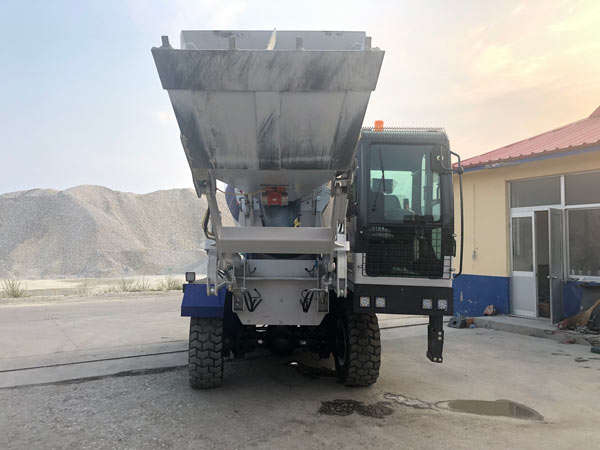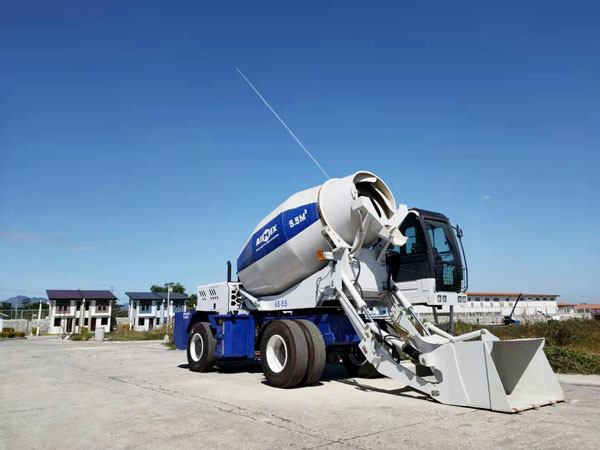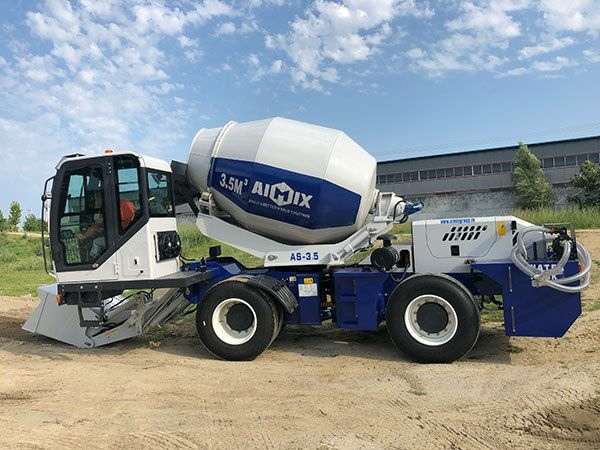


Let’s explore the question of using self loader mixer to replace the batching plant.
In the construction industry, efficiency and cost-effectiveness are crucial. The introduction of self-loader mixers has sparked debate on whether they can replace traditional batching plants. To understand this, we must explore the capabilities and limitations of both technologies.

Self loader mixers are versatile machines that combine concrete mixing and transportation in one compact unit. They are mobile and can operate in diverse terrains. And there are different uses for self-loading mixers. On the other hand, batching plants are stationary facilities designed to produce large volumes of concrete with high precision. Each has its own advantages.
Self loader mixers offer several benefits:
These advantages make self loader mixers appealing, especially for small to medium-sized projects.
Despite their benefits, self loader mixers have limitations:
These limitations make them less suitable for large-scale projects requiring high volumes of precise concrete.
Batching plants offer several benefits:
These advantages make batching plants essential for large-scale construction projects.

Batching plants also have limitations:
These limitations can be a disadvantage for smaller projects or those in remote areas.
When comparing self loader mixers and batching plants, consider the project’s scale, location, and budget. Self loader mixers are suitable for small to medium projects with limited budgets. Batching plants are better for large-scale projects requiring high precision and volume.
Can self loader mixers replace batching plants? The answer depends on the project’s requirements. For small to medium projects, self loader mixers offer flexibility, cost savings, and mobility. For large-scale projects, batching plants provide the capacity, precision, and quality control needed. Ultimately, the choice depends on balancing the project’s needs with the capabilities of each technology.
